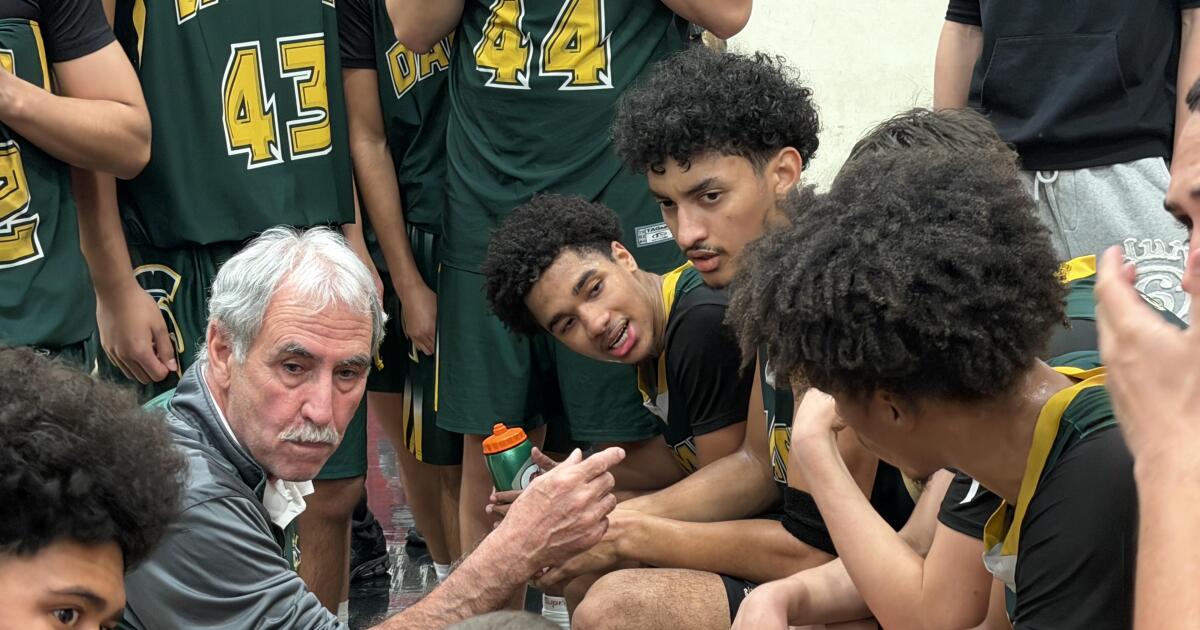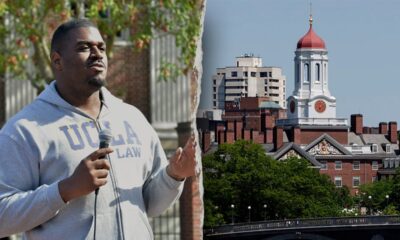Austin, TX
School of Design and Creative Technologies at The University of Texas at Au

The School of Design and Creative Technologies (SDCT) is the newest and fastest-growing program at the University of Texas at Austin. SDCT, a part of the prestigious College of Fine Arts, runs a specialized design curriculum worthy of its place in one of the world’s largest and most renowned research institutions. Our students are uniquely positioned to benefit from all that UT Austin offers as they learn critical design skills.
Our Department of Design offers undergraduate and graduate degrees alongside robust design courses open to all UT students. Nestled within a large university, we are a vibrant school where individual faculty and students know one another well and everyone participates in building a community based on creative collaboration.
Undergraduate Design Degrees
Our B.A. and B.F.A. degrees offer a comprehensive educational journey that equips students with the tools to tackle real-world challenges across various domains. Through a blend of coursework and mentorship from faculty, students study graphic design, industrial design, interaction design, design research and strategy, and design history. Design courses address issues ranging from health and sustainability to social justice and technology. The program cultivates creative confidence and urges students to explore open-ended solutions beyond the obvious.
Undergraduate students progress through a meticulously structured degree program, from foundational sequences to specialized electives such as Branding for Social Justice and Retro Futures. In the first two years, emphasis is placed on mastering design fundamentals like typography, sketching, form-giving, and design history. As students advance, they delve deeper into specialized areas of interest — from letterpress printing to health care systems — using design as their toolset.
Graduate Design Programs
At the graduate level, our M.F.A. in Design offers a dynamic, 21-month journey for ambitious designers seeking to tackle the complex challenges of the 21st century. This program, led by award-winning design practitioners and scholars, emphasizes studio-based learning, critical inquiry and advanced fabrication skills. Our M.F.A. program boasts small cohorts, which allows students to work closely with faculty mentors to tailor their education to align with their career aspirations. As they develop an expansive thesis project, students receive focused training in research, theory, criticism and design pedagogy.
In partnership with UT’s Dell Medical School, our M.A. in Design focused on health is a first-of-its-kind training ground for innovators who strive to make changes within our healthcare system. On an accelerated 10-month timeline, students use design tools to address complex health issues, envisioning transformative solutions for the future of healthcare delivery.
The Center for Integrated Design
The Center for Integrated Design (CID) connects students from all majors across the University of Texas at Austin. CID offers collaborative, design-based learning experiences, where students integrate design skills into the context of their major area of study. Students enrolled in CID courses work alongside a diverse group of peers and expert design faculty members to explore design as a powerful, effective methodology for solving real-world challenges. They learn to frame problems, study human behavior and apply insights that positively impact their chosen industry and the world.
Career Support
Our industry relations team facilitates connections with professionals in the field, jumpstarting students’ professional networks and opening doors to diverse career opportunities. All students are offered career development opportunities with one-on-one consulting, resume reviews and interview training. Recent graduates of our programs have gone on to work with some of the most renowned design teams in the U.S., from The New York Times to Microsoft and from GSD&M to frog.
At the University of Texas at Austin, we believe in the power of design to drive positive change, and SDCT is at the forefront of this transformative journey. Through a blend of innovative curriculum, expert mentorship and real-world experience, we empower our students to become skilled designers and visionary leaders who will shape the future of design and beyond.

Austin, TX
Flesh-eating screwworm may be moving closer to Texas on its own, ag commissioner says

AUSTIN, Texas – A Texas agency is concerned that the flesh-eating New World screwworm could be getting closer to Texas without commercial livestock movement.
Texas Agriculture Commissioner Sid Miller is sounding the alarm again for livestock owners to remain vigilant in watching for signs of the parasite in their animals.
Screwworm sighting near Texas
The latest:
Miller said in a Thursday release that a screwworm had been detected in a cow in González, Tamaulipas, a little more than 200 miles from the southern Texas border.
According to the commissioner, the cow had no reported history of movement outside Tamaulipas, and is the third active case reported there.
Officials in Mexico have not reported a known population of the worm in Tamaulipas. They’re working with U.S. authorities to investigate further into the new case.
What they’re saying:
“The screwworm now may be moving closer on its own, with no apparent link to commercial animal movement,” Commissioner Miller said. “Texas producers must act now—stay informed, stay vigilant, and prepare immediately. We cannot drop our guard for even a moment.”
Inspect livestock for screwworm
What you can do:
Miller urged immediate action from ranchers along the Texas border.
“Inspect your animals daily,” Miller said. “Check every open wound. If anything looks suspicious, report it right away. Better a false alarm than a delayed response—early detection and rapid reporting are our strongest defenses against this devastating pest.”
U.S. plan to fight screwworm in Texas
Big picture view:
The threat to cattle has been deemed so potentially devastating to the U.S. food supply that the federal government is committing $850 million to fight it.
Most of that money will be spent on building a sterile male fly production facility near the border.
The facility will produce 300 million sterile male flies a week to be dropped into target areas where the screwworm is now. Those male flies help to reduce the population size through mating without reproducing.
A much smaller portion of the funding will be used for screwworm detection technology.
In addition, the federal government has already spent $21 million on a sterile fly production facility in Mexico.
What are New World screwworms?
Dig deeper:
The insect gets its name because it’s only found in the Americas.
It lays its eggs in the open wounds of animals, and its larvae become parasites, threatening livestock, domestic animals, and even people.
The screwworm was mostly eradicated in Texas and the rest of the United States in the 60s. But now, it’s moving north up from Panama and has a known presence a little over 300 miles south of the Texas-Mexico border.
The Source: Information in this article comes from Sid Miller.
Austin, TX
LD Systems expands Texas Footprint with Austin Location and welcomes ILIOS Productions — TPi

For over two decades, ILIOS Productions has been a key part of the live events community in Austin, TX, transforming spaces and audience experiences with a vast range of lighting and video design, as well as event production services across a diverse client portfolio. Now, with the backing of parent company Clair Global, LD Systems, a Houston-based premier provider of audio, video, and lighting for event production and installed technology solutions, is welcoming ILIOS Productions to the team, marking the group’s fourth location in Texas. ILIOS Productions will now operate under the LD Systems brand.
LD Systems will further resource ILIOS’ existing Austin operation to include additional services such as audio and rigging for live events, as well as integration solutions and services. This addition helps round out LD Systems’ ability to locally serve major metropolitan areas across Texas, including Houston, San Antonio, Dallas-Fort Worth, and Austin and reflects Clair Global’s continued focus on offering global resources while maintaining strong local-market expertise and responsiveness.
ILIOS Productions’ experience spans the concert and festival sector, corporate and activations, and high-end private, philanthropic and charitable events. The company’s commitment to critical event delivery has established trust with major brands including Lollapalooza, SXSW, Austin City Limits, Google, YouTube, the University of Texas System and many more.
Founder, President & Sr Ops Manager of ILIOS Productions, Bryan Azar, said: “After many years of working alongside LD Systems in Austin and beyond, we are delighted to be joining their world-class organisation. This is an exciting new chapter for a bolder future together.”
Zach Boswell, General Manager, ILIOS Productions, added: “We are passionate about the work we do, and the community and business culture found at LD Systems is the ideal next step for our dedicated employees to progress as a united workforce.“
LD Systems co-founder and President, Rob McKinley commented: “We are delighted to amplify our service offerings in Austin with the addition of Bryan and his exceptional team of technology professionals. They have made a significant difference to many Texans with the work they undertake, and LD Systems is proud to welcome both their talent and ethos to the company.”
Building on this momentum, LD Systems also announced plans to expand its San Antonio facility into a new location in January 2026. Together with the addition of ILIOS Productions in Austin, this investment reinforces the organisation’s long-term investment in Texas and its dedication to meeting growing client demand with enhanced capacity and infrastructure.
www.ldsystems.com
Austin, TX
Austin airport one step closer to major expansion that will add 32 new gates

AUSTIN, Texas — Austin-Bergstrom International Airport is one step closer to getting a major makeover after finalizing lease agreements with airlines that will support future renovations, including the addition of 32 new gates.
The airport on Wednesday announced the completion of Airline Use and Lease Agreements and Signatory Cargo Agreements with several major airlines and cargo companies, including Southwest Airlines, Delta Air Lines, United Airlines, American Airlines, Alaska Airlines, FedEx and UPS.
According to a press release from the airport, the use-and-lease agreements allow companies to commit funding to the project through rent and fees “generated under the agreements’ cost-recovery structure, supporting the airport’s ability to deliver projects that expand capacity, strengthen resiliency, and improve the passenger experience.”
The agreements will support the following projects at Austin-Bergstrom over the next 10 years:
- The addition of Concourse B, which will add 26 new gates, including 18 for Southwest Airlines and five with United Airlines.
- Concourse M, adding six new gates, a bus to transport travelers to and from the Barbara Jordan Terminal, new concessions, restrooms and passenger amenities.
- Enhanced seating and amenities, increased space and modernized concessions in Concourse A (home to all international flights). Delta Air Lines will have 15 gates, American Airlines will have nine, Alaska Airlines will have one and there will be eight common-use gates.
- Updates to HVAC systems, electrical system, IT and telecommunications, storm drainage, water quality and de-icing infrastructure.
In a statement, District 2 Councilmember Vanessa Fuentes applauded the future job creation that’s to come out of the project.
“This expansion program represents a tremendous economic opportunity for Austin—not only through the trades and construction jobs created during the buildout, but also through long-term jobs in concessions, airport operations, and airline services after the program is complete,” Fuentes said.
“This agreement reflects years of partnership, thoughtful negotiations, and shared vision with our airline partners. Their commitment provides the financial foundation we need to modernize our facilities, transform customer experience, and build the infrastructure needed to support Central Texas’ continued growth for generations to come. AUS would not be where it is today without the collaboration and investment of our airlines, and we are deeply grateful for their trust and partnership as we shape the future of air travel in Central Texas,” said Ghizlane Badawi, CEO of Austin-Bergstrom International Airport.
The final cost of the project is still under development, but is anticipated to grow from an estimated $4 billion to $5 billion. According to the airport, funding sources include airport cash reserves, airport revenues, bond proceeds and grants from the Federal Aviation Administration.
“No local Austin taxpayer dollars are used to fund the airport’s expansion program,” the release said.
-

 Detroit, MI5 days ago
Detroit, MI5 days ago2 hospitalized after shooting on Lodge Freeway in Detroit
-

 Technology2 days ago
Technology2 days agoPower bank feature creep is out of control
-

 Dallas, TX4 days ago
Dallas, TX4 days agoDefensive coordinator candidates who could improve Cowboys’ brutal secondary in 2026
-

 Health5 days ago
Health5 days agoViral New Year reset routine is helping people adopt healthier habits
-

 Nebraska2 days ago
Nebraska2 days agoOregon State LB transfer Dexter Foster commits to Nebraska
-

 Iowa2 days ago
Iowa2 days agoPat McAfee praises Audi Crooks, plays hype song for Iowa State star
-

 Nebraska2 days ago
Nebraska2 days agoNebraska-based pizza chain Godfather’s Pizza is set to open a new location in Queen Creek
-

 Entertainment2 days ago
Entertainment2 days agoSpotify digs in on podcasts with new Hollywood studios
















